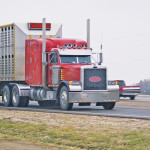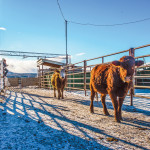
Tag Archives Traceability

Dairy sector unveils national traceability program
Producers across Canada are being asked to activate their DairyTrace accounts and start phasing out any use of yellow ear tags in calves bound for the beef market

Ontario’s broiler egg tracking systems backed for upgrades

PigTRACE hog traceability program to get an overhaul
Five years after participation became mandatory, not all producers are reporting movements, Manitoba Pork says

Traceability changes to jumpstart enforcement in livestock movement reporting
Manitoba producers without a premise ID might find it hard to ship livestock once the Canadian Food Inspection Agency announces traceability changes expected next spring

Livestock premises ID participation strengthens Canadian agriculture

Ottawa to back P+H’s Hamilton flour mill

Fines now an option for pig traceability enforcement

Fines coming for not reporting pig shipments
It will no longer just be a warning for those who haven’t complied with regulations to report animal movements

Acquiring true livestock traceability
A new mobile tool created by a Canadian producer co-operative offers producers the ability to capture livestock data in the field with the device that is already in their pocket
A new mobile tool created by a Canadian producer co-operative offers producers the ability to capture livestock data in the field with the device that is already in their pocket
A data-management platform from an Ontario producer co-operative is promising birth-to-sale traceability made easy. BIO, based in Elora, Ont., has designed three systems that work in conjunction with each other to offer mobile traceability from the birth of the calf to the sale of the final product. The future of the beef industry is data
Ultra-high-frequency RFID takes tag reading to the next level
Forget reading one tag at a time, this technology can track every member of a herd going down an alley at once


